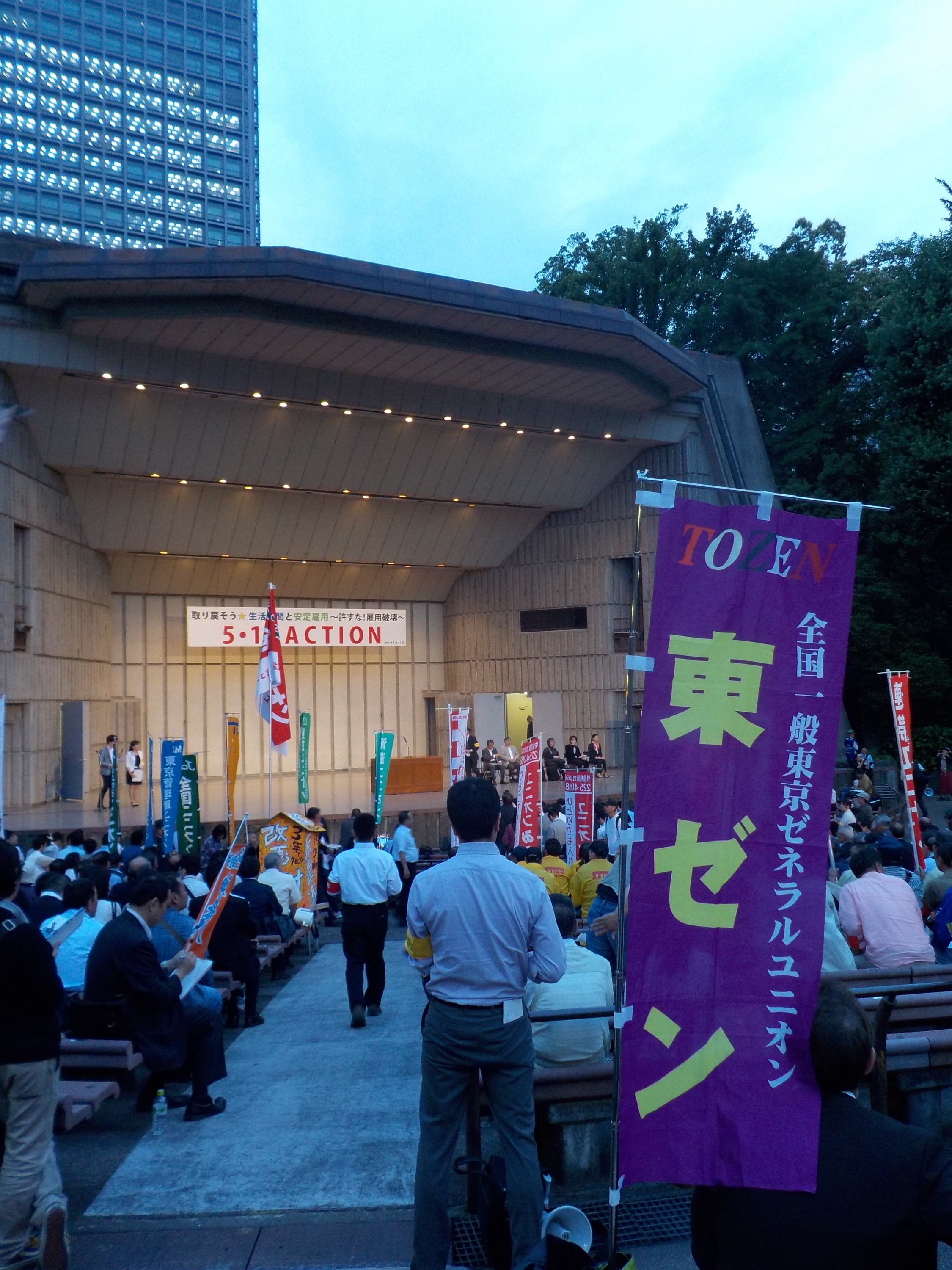Dia: Domingo 29 de Novienbre del 2015 14~19h
・Habra asesoramiento teléfonico por abogados.
・La consulta y los interpretes son gratuitos.
・Problemas como ; Accidentes en el trabajo. Sobre el seguro de accidentes de trabajo en el trayecto de la casa a la fabrica y de la fabrica a la casa. No te pagan el salario o no te pagan las horas extras de trabajo, Despido injustificado y/o despido imtenpestivo. Te tratan mal, acoso sexual.
・Pueden llamar extranjeros o personas que apoyan a extranjeros en todo Japon.
・Hay interpretes del idioma Chino, Portugues y Español.
★ El contenido de la consulta es confidencial ★
Teléfono
Tokyo 03-6427-5902 Japones・Español ・Chino
Nagoya 052-414-5901 Japones・Portugues (Español)
Osaka 06-4708―3631 Japones・Chino
Hiroshima 050-3136-5250 Japones
COMO CONSULTAR
1 Llame al numero telefónico que aparece arriba.
2 Las personas que pueden hablar Japones, consulten en Japones. Las personas que desean consultar en Chino, Portugues y Español, díganle la persona que conteste el teléfono.
3 En caso de que el interprete este atendiendo otra llamada, nosotros le devolveremos la llamada a usted.
Organizadores
・Asociacion de abogados para trabajadores extranjeros
http://grb2012.wordpress.com/
・Grupo de abogados para trabajadores aprendices
http://kenbenren.www.k-chuolaw.com/
・Grupo de estudio “imigrantes”
http://migrant-worker.org/




